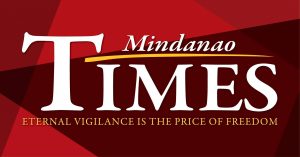 Archbishop-Emeritus Antonio J. Ledesma, SJ
Archbishop-Emeritus Antonio J. Ledesma, SJ
(Homily delivered during the 9th day memorial mass for former President Benigno Simeon Aquino III at the St. Augustine Metropolitan Cathedral in Cagayan de Oro City on 3 July 2021)
CAGAYAN DE ORO CITY (MindaNews) — When Typhoon Sendong struck Cagayan de Oro in December 2011, among the first to come and offer aid was the sister of President Aquino, Viel, with a companion from Assisi Development Foundation. Then, Secretary of Social Welfare and Development, Dinky Soliman, also visited the city to help oversee relief operations. These visits represented the extension of President Aquino’s concern for calamity victims.
But then a series of other calamities struck the Philippines: Typhoon Pablo in (December) 2012 that swept across southern Mindanao; the man-made crisis of the Zamboanga siege in September 2013; the Bohol earthquake that demolished six heritage churches in October 2013; Super Typhoon Yolanda in November 2013 that devastated Tacloban and much of the Visayas; and another man-made disaster of the Mamasapano deaths of 44 special police officers in January 2015 (just a week after the papal visit).
All these natural and man-made calamities happened during the presidential term of Benigno “Noynoy” Aquino in 2010-2016. Looking back, one would think that these “acts of God” and of men were enough to rock and destabilize the ship of state under the helm of Aquino. But over the past few days since his passing away, many voices have been raised by careful observers praising the steady course of daang matuwid charted by Pinoy throughout his presidency.
Social Reforms
What were some of these accomplishments? At the funeral Mass at the Gesu Church of the Ateneo de Manila University, his alma mater, Bro. Armin Luistro dubbed Noynoy as the “Education President.” As his Secretary of Education, Bro. Luistro himself knew the facts. During Noynoy’s six-year term, 185,000 classrooms were built, or an average of 84 classrooms every day; this wiped away the backlog of 66,800 classrooms. Furthermore, 174,000 new teachers were hired; of the 805,000 public school teachers today, one out of five was hired during Aquino’s time. The budget for public education rose from P175 billion in 2010 to P364 billion in 2014.
What was more challenging was the implementation of the K-to-12 curriculum, adding two more years of senior high school for every student to make the Philippines competitive with the rest of the world. Where many previous administrations feared to tread, President PNoy showed the political will to accomplish this. This same courage and determination he showed in the passage of the Responsible Parenthood and Reproductive Health Bill, despite vocal opposition from many church groups.
Another social measure that President Aquino espoused was the expansion of the Conditional Cash Transfer (CCT) that was started by his predecessor (and former Economics teacher at the Ateneo, President Gloria Macapagal-Arroyo). Under the guidance of DSWD Secretary Dinky Soliman, the CCT or 4 P’s (Pantawid Pamilyang Pilipino Program) was able to reach out to 7.7 million of the poorest families, The World Bank cited the 4 P’s as one of the best run programs in the world. The passage of the Sin Tax Reform Act also provided universal health coverage for senior citizens.
Political Reforms
On the political front, President Noynoy’s stand for good governance was tested by the Napoles scandal involving millions of pork barrel funds being skimmed off ghost projects. In the process, three sitting senators were put in jail: Juan Ponce Enrile, Jinggoy Estrada, and Bong Revilla.
Perhaps, one of the longest-lasting legacies of Aquino was the pursuit of the peace process with the Moro Islamic Liberation Front (MILF), ratified in the signing of the Comprehensive Agreement on the Bangsamoro in March 2014 in Malacanang. Unfortunately, with the Mamasapano incident, the passage of the Bangsamoro Organic Law had to await five more years, and with this the creation of the Bangsamoro Autonomous Region for Muslim Mindanao (BARMM) during the time of President Duterte in February 2019. Aquino’s administration also failed to follow up on peace negotiations with the National Democratic Front of the Philippines.
On the international front, the Aquino Administration can be credited for the landmark decision of the International Arbitration Court in The Hague recognizing the Philippines’ sovereignty over its offshore islands, contradicting the claims of China. This is the crucial bargaining chip of the Philippines in its diplomatic battle with a giant neighbor. (To be continued)
